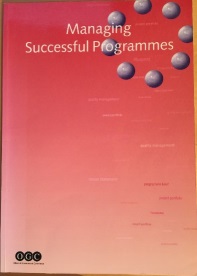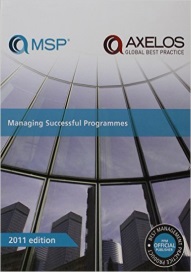Lessons the Ancients can teach the NHS about Programme Management
- neilstevens
- Jun 7, 2016
- 4 min read

Imagine building the pyramids. Huge stones, quarried, dragged miles and then lifted into position. Building the pyramids was a complex but exciting transformation which absorbed hours of skilled workers time and effort.
Sound familiar?
Does your transformational change feel like you are dragging huge stones over miles, without the resources to hoist them into position?
We’ve been there too.
Programme Management.
Overwhelmed and frustrated with the sheer complexity and scale of the thing. But we’ve discovered it doesn’t have to be this way.
Applying best practice programme management increases programme success by helping to realise the benefits while delivering business as usual. Would you like to ensure your programme does the same?
Programme Management. The NHS equivalent of constructing the pyramids.
Why do we think we have something to say on the subject? Well, we have over 50+ years’ combined experience operating in the NHS and a passion for making a difference. We have significant senior level experience managing complex programmes and significant hands-on experience of working with stakeholder groups. Our in-depth understanding of NHS organisational politics, structures and financial challenges facing the NHS today gives us a unique insight into how best practice can be successfully applied to real world NHS working.
Let’s put programme management into some context, after all it’s been around for thousands of years.
The Great Wall of China (700 to 200 BCE) is over 21,000 km in length, was built by soldiers, forcibly-recruited peasants and convicts. It crosses 9 provinces and municipalities.
Stonehenge (3000-1500 BCE) required 82 bluestones from the Preseli Mountains in south-west Wales to be transported to the site. It is thought these stones, some weighing 4 tonnes each were dragged on rollers and sledges to the headwaters on Milford Haven and then loaded onto rafts – 240 miles!
Over 100 Egyptian pyramids were built between 2630 BCE and 300 AD demonstrating increasing complexity and sophistication of design.
As we can see large and complex programmes are nothing new.
If we skip a couple of thousand years we arrive at best practice 1999 - MSP®- Managing Successful Programmes. If only the Ancients had known this, they could have saved themselves 2000 years.
Now for some modern history - Managing Successful Programmes - MSP®
Managing Successful Programmes best practice was documented and first released in 1999 and considered evolving concepts of business change in relation to projects.
2003 saw the second edition with the 2007 edition exploring new techniques and practical implementation guidance.
2011 is the latest edition with the focus on benefits management and integrated assurance.
In 2014 AXELOS was created, a joint venture between the Cabinet Office and Capita plc.
AXELOS is responsible for nurturing Global Best Practice for a number disciplines: IT Service Management, Management of Value, Management of Portfolios, MSP, Prince2, Management of Risk and P3O.

Programme management is critical to the NHS or face a £10bn overspend
The NHS Connecting for Health (CFH) Agency acquired responsibility for delivering the NHS National Programme for IT (NPfIT) in 2005. It was an initiative to move the NHS in England towards a single, central electronic care record for patients and to connect 30,000 GPs to 300 hospitals, providing secure access to these records.
Originally expected to cost £2.3 billion the total cost was estimated by the National Audit Office to be £12.4bn, and the NAO also noted that "...it was not demonstrated that the financial value of the benefits exceeds the cost of the Programme".
What went wrong?
The strategy was wrong. Governance was poor. Culture was ignored. Incentives were off beam.
A £10bn overspend!?
That’s why best practice programme management is so important in the NHS.
So what the heck is Programme Management anyway?
The action of carrying out coordinated organisation, direction and implementation of a dossier of projects and transformation activities (in the programme) to achieve outcomes and realise benefits of strategic importance to the business.
Wot?
In other words;
The organisation wants or needs to change from one set of circumstances to another.
This change is of strategic importance.
There are two aspects: the benefits of the change and the activities that must happen to deliver those benefits.
Both aspects must be closely managed to ensure they happen.
Everything else is structure, designed to make sure activities happen to deliver benefits
The MSP® framework is designed to enable the delivery of transformational change and the achievement of an organisation’s strategic objectives.

Programmes exist in the tension zone between:
the strategic direction of an organisation,
the delivery of change capability by projects,
the need to maintain business performance and stability while simultaneously realising and exploiting the benefits from associated investments.
Types of Programme
Different types of programme will require different focus, resource and control.
Vision led programmes

Vision-led programmes start with a clearly defined vision, have a top-down approach and focus on strategic or innovative opportunity with radical transformation of business, culture or both.
Emergent programmes

Evolve from current uncoordinated initiatives where there is recognition of the value of a joined-up approach with an emergent vision and end goal.
Compliance Programmes

Compliance programmes, also known as ‘must do’ programmes, are initiated because the organisation will have no choice but to change. These changes may be driven by market forces, there may be a potential negative impact of not changing or regulatory changes may compel change.
Managing Successful Programmes - MSP® Principles – so what?
MSP principles apply to every programme. They are designed
to empower individuals to deliver successfully in order to remain aligned with corporate strategy,
lead change,
envision and communicate a better future,
focus on the benefits (and threats to them) and potential dis-benefits,
add value,
design and deliver a coherent capability and learn from experience.
MSP principles have been proven to work over and over again since first devised in 1999.
So what what can the Ancients teach the NHS about Programme Management?

Managing complex programmes has been done before, many times. The difference is that we know how best to manage successful programmes. Unlike in 700 BCE best practice is written down and has been since 1999. If we carefully adhere to MSP principles we won’t repeat the £10bn mistakes of programmes like the NPfIT.
Next steps
Take the programme you are currently involved with. It may seem like an impossible task to co-ordinate and deliver on such complexity. It’s challenging and hard work with, knowing the NHS, many conflicting perspectives.
But the secret is to put in place the principles that have already been proven to work.
Time and again.
As a first step, review your programme structure. Is it convoluted with multiple conflicting accountabilities and overlapping roles?
Get that sorted at the foundation and you’ll be at the top of your pyramid in no time.

























































I read the article about how lessons from the ancient Egyptians can help modern programme management and it made me think about how planning, clear goals, and teamwork were key even thousands of years ago. It reminded me of a time I was stuck on a big essay and used Online assignment help to get past the hard parts, so I could focus on organizing my ideas better. What really stuck with me is that good planning and learning from the past can help you do better work today.
With a growing need for remote education, UNICCM has carved out a reputation for providing dependable, high-quality learning experiences. Their courses are tailored to working professionals who need flexibility without compromising on content. Modules are delivered in digestible formats with clear milestones. This structure encourages consistent engagement and timely completion. It’s a practical solution for today’s learners.